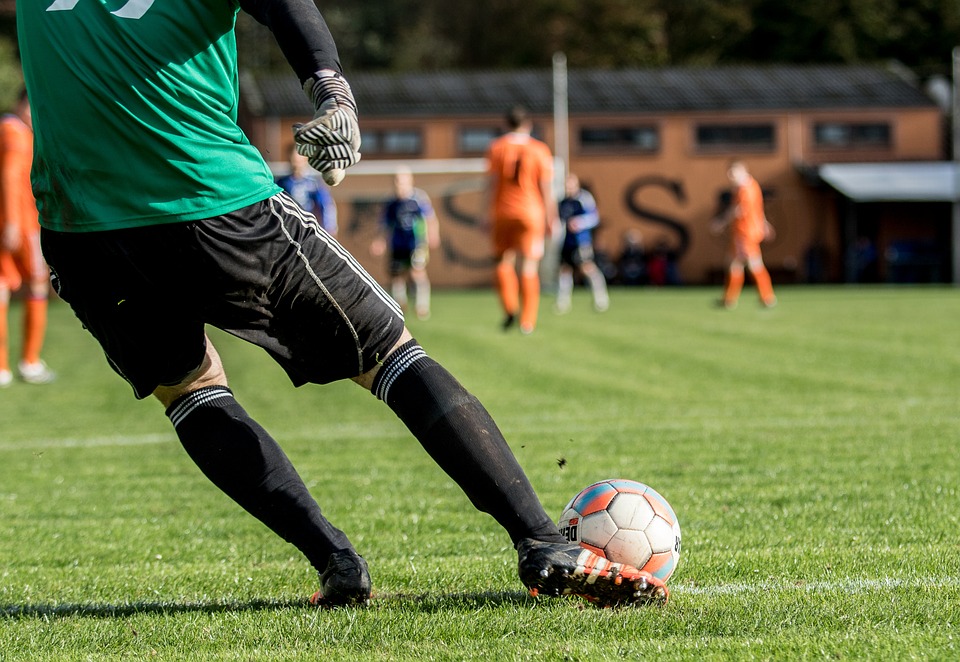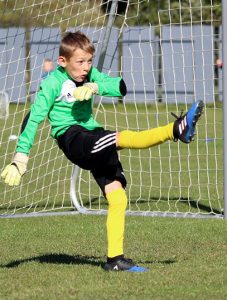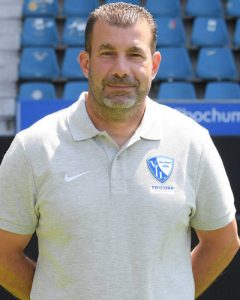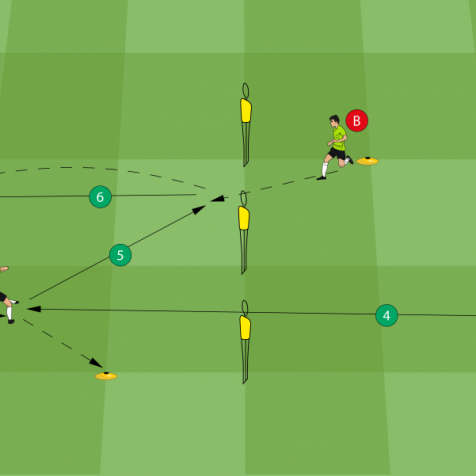In soccer, as in other games, the importance of the goalkeeper cannot be overstated. The
goalkeeper’s performance is the deciding factor in many victories- and many defeats. In this post I will share with you guidelines that I consider essential for a good goalkeeper training!
 Guidelines for a good goalkeeper training
Guidelines for a good goalkeeper training
- Each session (technique, tactics and condition) should be appropriate
for players’ age and ability level. - The smaller the group, the more you can focus on the goalkeepers. The ideal size for technique training is two to four goalkeepers; for condition training, the group can be
bigger. - Make practice intense, focused, varied and interesting – from 60 to 80 minutes, depending on the age level.
- A rule of thumb: Always move from easy to hard, from simple to complex.
- Practice new techniques by themselves at first, and then gradually combine them.
- Always combine coordination training with goalkeeper-specific technique training.
- The warm-up and the main portion of each session should always focus on a specific
concept. - Use warm-up to prepare players for the main session ‘ s focus point.
- Use general discussions and individual corrections to address mistakes (focus on the major problems); offer simple solutions.
- Instead of long sets with lots of repetition, exercises should be short, intense and demand full concentration.
- Exercises should approximate actual match play.
- Goalkeepers need goals (even if they’re just two cones) in every exercise, as clear points of reference and orientation.
- Include motivational exercises at the end of every practice session.
- It’s a good idea for all goalkeepers to practice with other age levels; for example, 9- to 10-year-old goalkeepers should practice regularly with the 10- to 11-year-old team, whose goalkeepers should practice with the 11- to 12-year-olds, etc. (An advantage is that they become more comfortable playing with players who are older and physically more mature) .
The importance of good technique for a Goalkeeper
Good technique is one of the single most important prerequisites for a successful career
as a goalkeeper. Therefore, a major objective of youth goalkeeper training is for players to
execute the movement sequences involved in goalkeeping techniques as automatically as
possible.
Players who learn the wrong moves when they’re young will have a very hard time correcting the problem later.
No goalkeeper will master all or even most goalkeeping techniques perfectly. Good
coaches know how far they can push their goalkeepers, in terms of technical development,
and when they have to make do with what they’ve already accomplished, for better
or for worse.
Goalkeepers should strive to improve their technical-tactical skills
Just like field players, goalkeepers should strive to improve their technical-tactical skills
and physical abilities continuously at every age level.
Coaches have to be resourceful – sometimes a sympathetic educator, sometimes a tough drill instructor – but a continuous and clearly structured training program will always be
effective in the lang run.
If you want to be a big star, you have to start small!
 Should I incorporate goalkeeper training into my regular team practice?
Should I incorporate goalkeeper training into my regular team practice?
The practical question of whether goalkeeper training should be incorporated into the team’s regular practice sessions cannot be answered with a simple yes or no.
In professional soccer, separate goalkeeper training is practically the rule (apart from team and group tactics training, which requires goalkeepers and field players to practice together).
At lower levels and in youth soccer, separate goalkeeper training usually runs into a major obstacle: limitations on the coach’s time.
For many of these teams, a separate goalkeeper training session even once a week would be a major accomplishment. And at least some parts of the general training program – crosses from the outside forwards, 1 v. 1 situations in front of the goal , and similar exercises – do provide plenty of action for the goalkeepers.
 About the Author
About the Author
Peter Greiber is a professional Goalkeeper coach with over 25 years of experience. He has coached for 1.F.C Köln/Cologne Football Club for over 10 years and is currently the goalkeeper coach at VFL Bochum in the second division of Germany.
He is the author of the book “The complete Keeper- Youth-Goalkeeping fomr A-Z ” which can be ordered online at https://shop.ifj96.de/en/book-the-complete-keeper


